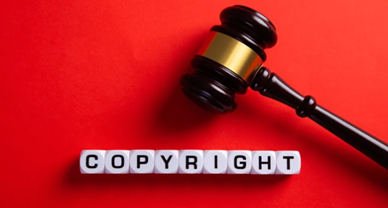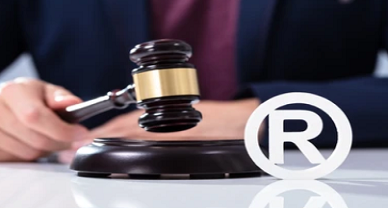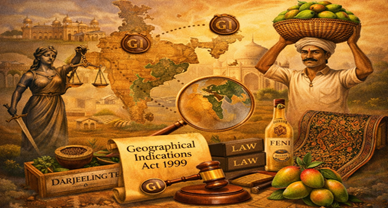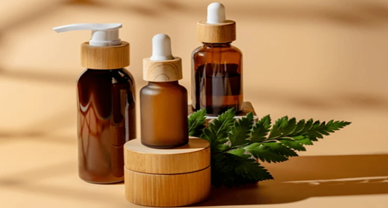The Importance of Copyright Registration: Why Creators Should Secure Their Rights
Protecting original work has become imperative in the current digital era, where creative content is readily available and shareable. Copyright then becomes essential to protecting creators’ rights by providing legal protection against the unapproved use, duplication, and distribution of their works.
In India, the Copyright protection for individual creators is valid for 60 years following their passing as per the Copyright Act of 1957. The duration of this protection can vary from country to country, in the United States this protection extends for 70 years following the author’s passing.
Ideas themselves are not protected by copyright; only how they are expressed, presented, or arranged is. Even though a lot of people may have similar ideas, there can be significant differences in how they express them. Therefore, it is truly the expression of the said ideas that are granted protection and not the shared idea itself. Copyright protection is essential for promoting creativity as it gives creators control over how their work is used. Since anyone could copy and use their creations without their consent or payment, creators would have little incentive to produce new works without it.
This blog attempts to inform creators about the importance of copyright registration for creators, creative theft, legal recourse, and the implications of copyright infringement in the context of India.
UNDERSTANDING COPYRIGHT
The legal concept of copyright gives authors and other creators the exclusive authority to use their original works, including plays, music, artwork, and literature, including books, movies, music, photographs, paintings, sculptures, software, and architectural designs. The creator has control over how their work is reproduced, distributed, adapted, and displayed in public via copyright.
Once an original work is produced in a tangible form, like being written down or recorded, copyright protection is automatically granted. However, automatic protection is available, although registering the copyright offers several advantages and enhances the creators’ legal position.
To obtain copyright protection, artists in the majority of nations, including India, are required to formally register their creations with the government. Particularly in India, the work is protected for the lifetime of the creator plus an additional 60 years after it is registered. Although common law protection is more restricted and more difficult to enforce than statutory protection, a work may still be protected under common law even if it is not registered.
CREATIVE THEFT
Creative theft, occurs when original works are stolen through reposts, remixes, or style imitations on social media, and it poses a serious problem for independent artists. Fundamentally, creative theft is the practice of taking someone else’s work and using it without their permission, frequently passing it off as one’s own. In addition to violating the rights of the original creator, this unethical behaviour causes large losses and denies artists the credit and recognition they are due. For instance, if an independent musician creates a song and posts it online, it may be illegally stolen, claimed by another person, and even registered in their name. In addition to denying the musician credit and possible financial gain, this enables the thief to inadvertently copyright the song, making it more difficult for the original creator to recover ownership.

Particularly susceptible to creative theft are independent artists, who frequently lack the funding and assistance of larger studios. Because so many artists share their work on social media in the digital age, there is a greater chance of exploitation. This fact emphasises how urgently awareness and safeguards against creative theft are needed. Social media can boost engagement and visibility, but it can also lead to abuse and unapproved duplication. It is more difficult for independent artists to obtain just recognition and payment since many are ignorant of copyright laws or the legal safeguards that are available to them. Addressing these issues is essential to establishing a just and encouraging atmosphere where independent artists can flourish and be fairly recognised for their work.
RIGHTS AND RECOURSE TO CREATIVE THEFT
Although it is not required, copyright registration is highly advised in India. For a predetermined amount of time, registration gives authors the legal protection and exclusive rights to their creations, including the ability to stop illegal use. For instance, a person automatically owns the copyright to a song they write and post on social media. However, by publishing it on the platform, they usually give the platform permission to use the content in accordance with the platform’s terms and the user’s selected privacy settings.
The original author of the song has legal options if someone were to steal it and claim it as their own. If the infringing content satisfies the requirements for copyright protection, they are protected by copyright law and have the right to file a Digital Millennium Copyright Act (DMCA) takedown notice against it.
The fact that copyright registration serves as evidence of ownership is one of its main advantages; this is particularly useful when submitting a DMCA notice. The original creator can quickly establish ownership with registered copyright, which expedites the process and reduces the time and effort required to assert their rights. If the original creator submits the required information, including proof of registration, after a DMCA notice is filed, the infringing content has to be taken down from the platform. Creators can preserve control over their original works and safeguard their rights thanks to this process.
THE IMPORTANCE OF COPYRIGHT REGISTRATION
- Public Notice of Ownership: When a copyright is registered, it serves as a public declaration that the work is protected and alerts others to the creator’s rights. It can deter possible infringers from using the work without authorisation and acts as evidence of ownership.
- Legal Protection and Deterrence: In the event of infringement, the creator’s legal position is strengthened by copyright registration. It enables the creator to take legal action, which may involve requesting statutory damages, damages, or legal fees. Because infringers are more likely to take the claim seriously and be reluctant to use copyrighted material without permission, a registered copyright can serve as a deterrent.
- International Protection: International protection can be more complicated than domestic copyright protection, even though domestic copyright protection provides certain protections. Nonetheless, many nations can benefit from reciprocal copyright protection thanks to accords like the Berne Convention. It can be easier to get protection in other nations if you register your copyright domestically.
- Presumption of Ownership and Validity: In a legal context, copyright registration establishes a presumption of ownership and validity. Because it places the onus of proof on the infringer to contest the ownership or legality of the copyright, this is helpful in disputes or when enforcing rights.
- Commercial Opportunities and Licensing: Authors who have a registered copyright are able to grant licenses to others for the use of their creations in return for payment. This gives creators more options for making money by opening doors to commercialisation, cooperation, and monetisation.
OVERVIEW OF COPYRIGHT INFRINGEMENT IN INDIA AND ITS IMPLICATIONS
Copyright violations can have major legal and financial repercussions in India. It happens when someone distributes, copies, or uses a work protected by copyright without the owner’s permission. In India, copyright infringement is governed by the Copyright Act, 1957, which also specifies the rights of copyright holders and the consequences of using copyrighted content without permission. In India, copyright infringement has the following consequences:
- Legal Consequences: Those found guilty of copyright infringement may be subject to fines and jail time in addition to civil penalties. Depending on the type and seriousness of the violation, the law also allows for statutory damages, which can be substantial.
- Financial Losses: Since artists rely on their creations to make a living, infringement can significantly reduce their income. Creators and independent artists are particularly harmed by this since unapproved use of their work reduces the value of their labour and denies them potential income.
- Reputational harm: A creator’s reputation may also be harmed by copyright violations. Future opportunities may be impacted if a work is misused or altered because it can damage the public’s opinion of the creator’s reputation and artistic integrity.
With creativity becoming increasingly valued to the preservation of society, it also becomes increasingly important to ensure that people can earn a living off of being creative. This can only be achieved by protecting their creative property via copyright.
Author:– Sneha Bharti, in case of any queries please contact/write back to us at support@ipandlegalfilings.com or IP & Legal Filing.


